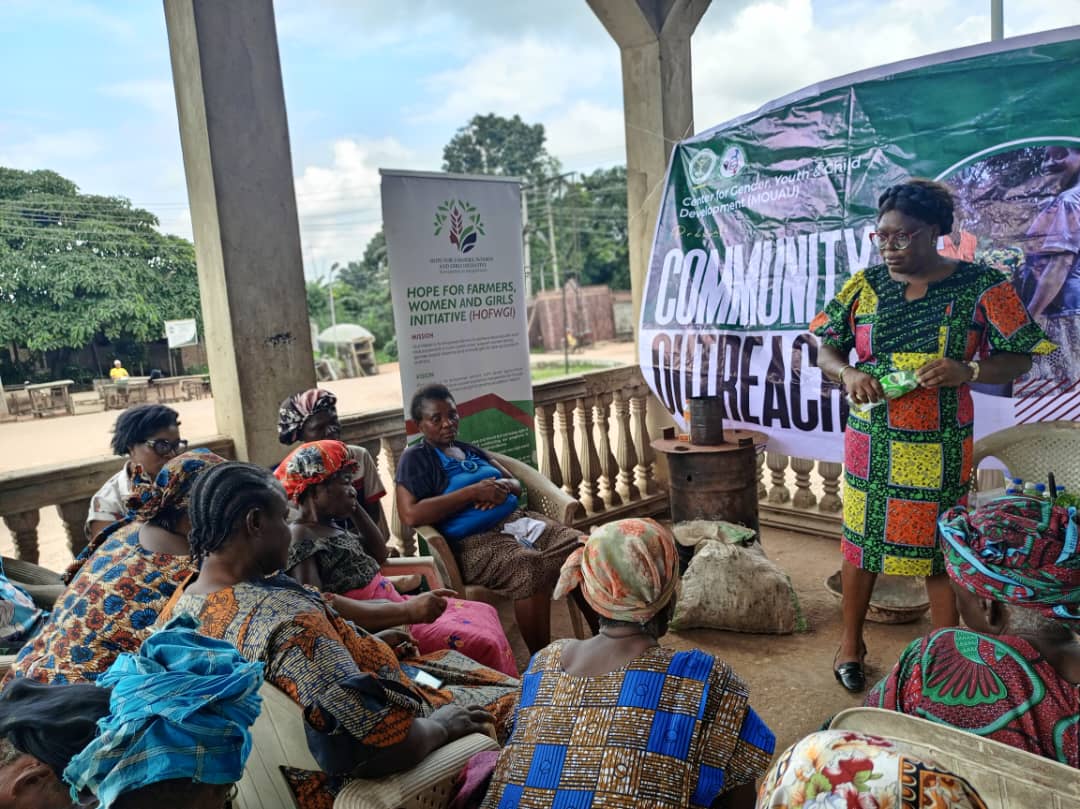A Professor of Soil Science in Michael Okpara University of Agriculture Umudike (MOUAU) Abia state, Prof. Mabel Ifeoma Onwuka has expressed worries over poor soils in southeast region, advocating for proactive measures to mitigate looming food insecurity.
The Director, Centre for Gender Youth and Child Development, MOUAU who disclosed this yesterday, during a community outreach in Umuajata Olokoro, Umuahia South Local Government Area (LGA), Abia state, organized in collaboration with Peri-Urban Agriculture Unit of National Roots Crops Research Institute (NRCRI) Umudike, maintained that some cultural practices are detrimental to soil fertility.






She identified bush burning, population pressure, climate change, erosion, indiscriminate use of fertilizers, among others as major factors that affects the soil negatively and leads to poor yields.
She warned farmers to avoid planting crops at waste dump sites, explaining that the presence of heavy metals like; mercury (Hg), lead (Pb), chromium (Cr), thallium (Tl), among others would be absorbed by crops and may lead to cancer and other health conditions.
Prof. Onwuka also decried the recent exponential increase in the price of sundry food items, enjoining Nigerians to grow some of the crops they consume, hence, the need for the home garden training.
The Agricultural expert noted that growing one’s crops is a way of saving money and also enjoying fresh crops organically produced at home.
She added that the smallest backyard space can produce good amount of vegetables, fruits, herbs among others at the least expense.
Onwuka also demonstrated to the women Biochar Production and how to convert their domestic and agricultural waste into organic fertilizer.
She urged Abia farmers to take advantage of MOUAU community services outreaches to boost food production.
Prof. Onwuka who lamented the inability of the rural women to access fertilizers, said that it would ensure availability of soil inputs to enhance quality and quantity food for their households.
The founder, Hope for Farmers, Women and Girls Initiative (HOFWGI), said that the essence of the rural outreach to farmers was to extend new research innovations to farmers in order to boost food production in Abia and Nigeria at large.
In her words: “It is a way of giving back to the society, mentor rural farmers, demonstrate biochar production and improve soil fertility and boost food production among others”.
She explained that Biochar is a solid carbon-rich product produced from biomass of agricultural crop residues, municipal solid wastes, through the pyrolysis process that involves thermal decomposition in a limited oxygen environment.
Contributing, a lecturer in the university, Dr. Blessing Ada Ahamefule, urged women to take farming very seriously as a way of supporting their households, adding that global food crisis looms.
In their vote of thanks, one of the beneficiaries, Mrs. Susan Nwachukwu thanked Prof. Onwuka, MOUAU and NRCRI for organizing the training for them, promising that they would put all the knowledge gained into good use.
They urged Prof. Onwuka and MOUAU to sustain the training, adding that it will impart positively on their farming activities and output.
Highpoints of the event were donation of Biochar pyrolysis unit, free distribution of organic fertilizers, and planting materials to farmers among others.
The Dean, College of Applied Food Sciences and Tourism, MOUAU, Prof. Nneoma Elechi Obasi, NRCRI team, led by the Head, Peri-Urban Agriculture Unit, Dr. Helen Nkoli Anyaegbunam, Mrs. Ebele Grace Nwawuba and other women groups, were present at the event.

























